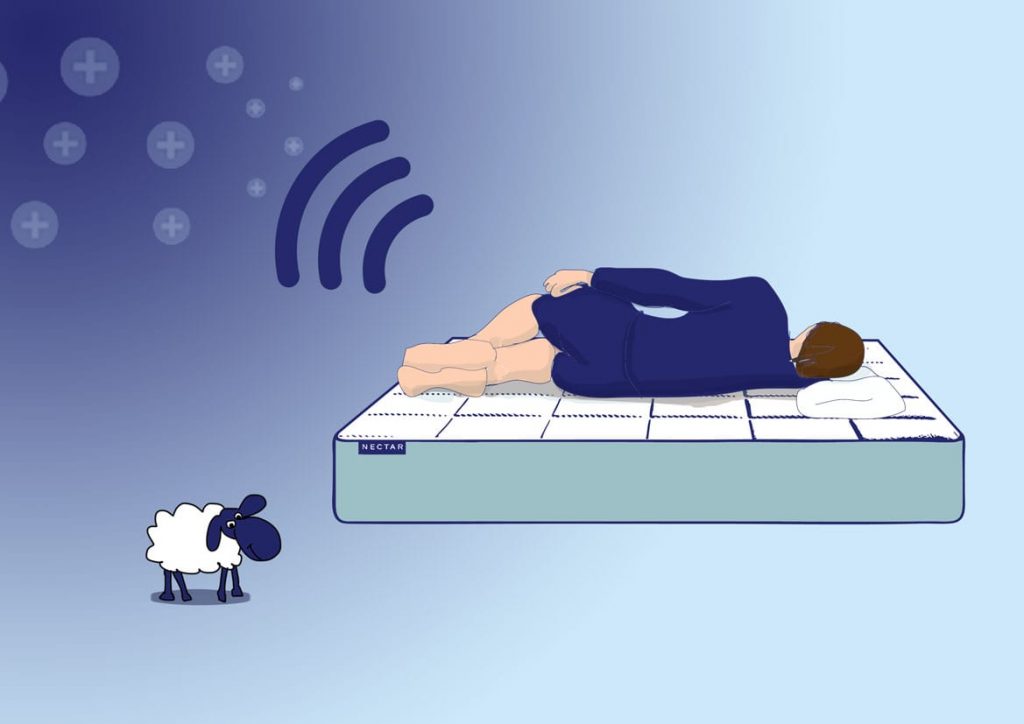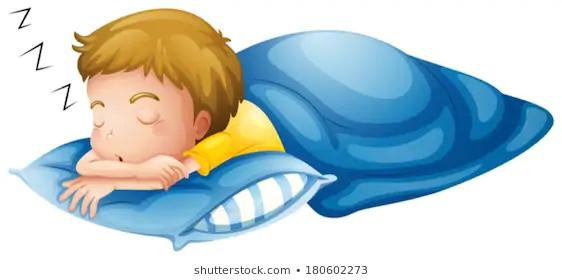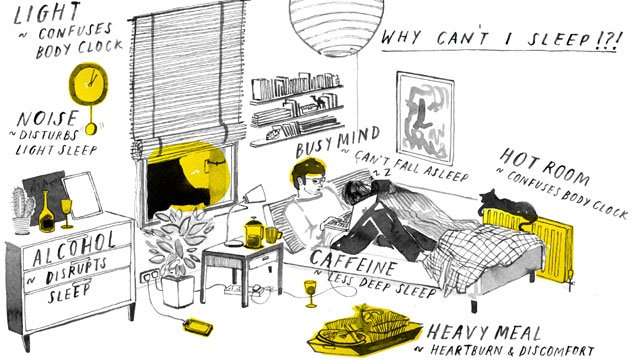Insomnia. It was something that troubled me throughout childhood and even during my teen years. I remember as a child when I used to go to bed before my parents did. But I would fall asleep much later when all the lights went out and everyone was fast asleep. My sister had no such problems. She would be as good as knocked out within 2 minutes. I still don’t know what kept me awake during school days. Surely it was not homework or exams. I was good at those. My mood would be tranquil, but I just couldn’t fall asleep.
During my teen years and early twenties, I stayed awake for football matches in Europe, basketball matches halfway across the globe and late night movie binges. Thankfully, even in those days I realised that studying late into the night was not my cup of tea, so studies were part of my daytime routine.
I have come a long way ever since, tracking what kept me awake and what catalysed my sleep. These days I can’t keep my eyes open after 10:30 pm. In a previous post, I talked about a wind-down routine to set the tone for a good night’s sleep. I even have a post where I challenge you to do 10 things in the morning before you touch your electronic device. And in yet another post, I talked about the advantages of making do’s and don’ts lists. Today’s post combines the ideas from those three posts and lists some things that you SHOULD do for a good night’s sleep and things that you SHOULDN’T.
DO’s
- Temperature: I have discovered that the temperature of the bed surface accounts for 80% of my ability to fall asleep. Everything else qualifies for a distant second. The temperature of the room doesn’t matter, only that of the bed. Too hot and I am tossing and turning all night. Too cold and my muscles tighten, making my body uncomfortable. An air-conditioned room definitely helps, but not if the cool air is unable to get the bed temperature down. If you aren’t fond of air conditioners (I am not, because they hike the electricity bill and make the room stuffy), then you can try a product such as this cool gel mattress, a mattress which has a layer of gel that absorbs heat and does not allow the bed to get warm.

- The right sounds or the lack of it: The best sound around the place you sleep is — no sound at all. But you cannot control the sounds from outside your home or bedroom. Unless your room is constructed in a soundproof way, the next best thing is a soft sound to mask the sounds from outside. the white noise from a ceiling fan is effective. It helps to keep your windows closed so that the majority of the noise from outside is cut out.
One more thing I try these days is to tell my Amazon Echo to play tracks such as ‘night time sounds’ or ‘sea waves’ or soft instruments such as ‘santoor’. A night time playlist of soft sounds that you play on Alexa or on your dedicated sound system is great for sleep. If you play the same playlist every night, the mind creates a new habit. Every time you play the playlist, your mind gets tricked into using the tracks as a cue to go to sleep.
If you are playing music on your laptop or phone, then set up a limited number of tracks in the playlist such that the playtime is no more than an hour. And then turn your screen off. Under no circumstances, should you have to switch on the screen and turn off the music. The music should stop playing on its own when the playlist is over.

- Darkness: Dim the lights as your bed time approaches. I recommend switching to soft lights an hour before your sleep. Just bright enough to read a book. In fact, a dedicated reading light that illuminates pages on your book, but does not shine directly on your eyes or does not illuminate the room is ideal.
- Journalling and planning the next day: We get it. There is a lot on your mind about what you are going to do at work tomorrow. It helps a lot to journal about your day to get your thoughts out on paper. While you are at it, you should prioritise your tasks for the next day, giving considerable thought to how you will solve problems at work. A calendar and a bullet journal work wonders.
- A glass of milk: Milk is a type of comfort food, especially when flavours are added to it. Comfort food relaxes and sedates you. While there are several fatty comfort food items available, you should limit yourself to flavoured milk. We use toned milk, with the added flavour coming from MTR Badam milk mix or Hershey’s Milk Booster syrup.

- Reading from a physical book: Curling up on the bed and reading is a relaxing experience. Reading from paper rather than from a screen also keeps the eyes relaxed since there is no blue light. Just make sure that you are not reading something that’ll keep you awake, such as a suspense novel.
- Loose clothing: Your clothing should allow your body to breathe and not break into a sweat. Thin, loose fitting cotton clothes are ideal. In fact, clothing while sleeping is just a cultural constraint that crops up when you are sleeping in a community such as in a large marriage hall, with people you don’t see often or in a room with children. It may also be only necessary as a layer during colder months. If you sleep in a more private setting during pleasant or warm weather, then you can consider giving more ‘freedom’ to your body.
- Cold shower during warm weather: If the weather is too warm, then a cold shower minutes before you go to bed works wonders. You don’t have to soap up. Just standing for a few seconds under the shower with cool water on your skin transforms your body’s temperature to something that supports sleep.
DON’Ts
- Electronic screens: These are the worst enemies to sleep. Gluing your eyes to an endless feed of stories and entertainment means that your mind doesn’t know when to stop and go to sleep. Your eyes are constantly signalling to your brain that there’s more to come. This is true for TV, phone, tablet or laptop. Research also shows that electronic screens emit light that is bluer than pure white light. Those research topics also show that blue light interferes with your sleep by suppressing the sleep hormone melatonin.
- Noise: Nothing is more distracting than the torture of a loud sound around your sleep sanctuary. It may be because of a party going on in your neighbourhood. But often it’s from your own home. A TV blaring loudly, Bollywood beat music playing, your phone making cacaphonic sounds from YouTube or even a member of your house talking too loudly.
Cut outside noises by shutting your window and setting up white noise. All energetic, loud and fast-paced music / sounds should stop at least one hour before sleep, replaced by soft instrumental music or low frequency chants.
It even helps me tremendously if I get rid of small bits of paper or plastic wrappers that I forgot to dispose. When they rustle in the currents of the ceiling fan, it disturbs me.
Shut the door to your room, politely requesting people speaking loudly to keep it down. If you have a room-mate, ask them to listen to music on their headphone.
Many people suggest earplugs, but I don’t like to attach anything any accessories to me while I sleep. - Bright lights: This is a problem for light sleepers like me. Bright light tells the brain that it is still day. Ideally, lights should be dimmed an hour before your desired sleep time. It is a powerful cue. A quiet room with dim / no lights speeds up the release of melatonin, the hormone that induces sleep.
My sister, Aarthy, uses this method several times when her young children (both below 5 years of age) are feeling active at night and refuse to sleep. The ‘lights out’ method signals to her children’s bodies that it is no longer okay to play and that they should go to sleep.
Your electric lamps should be switched off and curtains should be drawn shut. It helps if your curtains have a black-out screen, i.e. a layer of black cloth that blocks out all light, including harsh sunlight if you like a siesta. Sometimes, there’s still a small amount of light, probably from the wall electrical socket or your phone / laptop charger. It helps to cover your eyes with a mask or even something simple like a handkerchief. - Suspense: It is never a good idea to consume content with suspense right before sleep. If the suspense is not revealed, then you will think about it instead of sleeping. If the suspense is revealed, your body is still going through an adrenaline rush. There will even be the need to discuss the suspense with your sleeping partner. All suspense content should be dismissed an hour before sleep, ideally with the suspense revealed. If it is not revealed, it helps to journal about it and dump your mind’s junk on paper.
- Work-out too close to sleep: While a workout during the evening (about 4 – 5 hours before sleep) helps the body get tired during bed time, it has the opposite effect right before sleep. Adrenaline and endorphin levels spike. Core body temperature goes up. Both make it impossible to fall asleep immediately.
- Dinner too late: My ‘commute-to-an-office’ work days were filled with days of arriving home late (later than 10 pm) and having dinner 15 minutes before my desired sleep time. I would go to bed on a full stomach. The uneasiness of lying down on a full stomach caused huge delays in sleep. Your stomach should be ultra-light while sleeping. Dinner should have happened 2 hours before bed time. Ideally it should be a meal much lighter than lunch. But remember that you shouldn’t have eaten so long ago and something so light that you feel hungry again. I can suggest what food works for me, but every body is different and I will leave it upto you to experiment and find out what food works for you. For me, a full meal with rice or wheat with vegetables feels too heavy, while being over-simplistic with digestive biscuits is insufficient. Dosas as dinner work perfect.
- Too much proximity with your sleeping partner(s): Cuddling up to your spouse feels incredibly great. In winter, cuddling up all night provides the necessary warmth to stay asleep. But to stay asleep in warmer weather, cuddling is not a good idea. The intimacy feels good when going to sleep, but heat comes in the way, along with restrictions of movement and muscle cramps. While you should surely be in each other’s arms while going to sleep, you should pull away later at night.
But what if your sleeping partner is not your spouse? That’s when things get uncomfortable. Sleeping with people of less acquaintance in a community hall, hostel or in a tent in a trekking group can get really awkward. If you are in charge of your travel plans, make sure that you do have to end up sleeping as three persons on a a bed meant for two. Increase your budget and get a larger room, additional room or extra bedding if you have to. Do not scrimp on the quality of sleep.
But if you are not in control of your travel / bedding plans, then you can make adjustments where you need to. It starts with speaking to the organisers that their bedding accommodation is insufficient. Other tricks include zoning out with soft music in your ears with an earphone.
Conclusion
Your actions during the day determine how you shape your life and how successful you are. But for your actions to sustain day after day, you need sufficient and good quality rest at night or during other sleep times like a siesta. It doesn’t require several hours of sleep to feel rested. It just takes an incredibly high quality of sleep for even as short a time as half an hour. My sleep requirement is just 4 – 5 hours per night. But, there are several ways to destroy good sleep and several ways to get it right. Make sure that you are following the right ones to sleep like a pro and wake up rested and ready to go.


Great ways to fall asleep. Sleep quality is worth investing on
Indeed. A great sleep can mean the difference between winning the day in the morning or a morning gone bad.